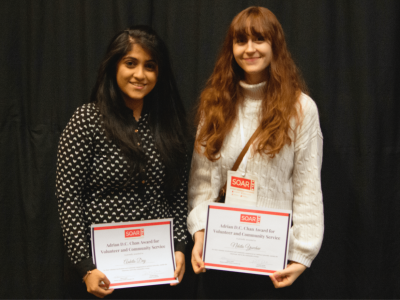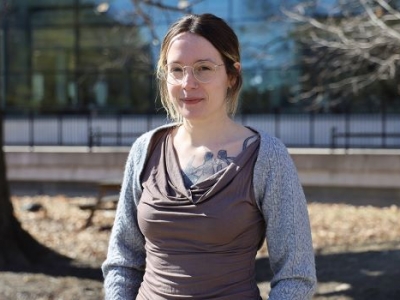 When Zachary Patterson enrolled at Carleton as an undergrad in 2004, he wasn’t particularly sold on the concept of a university education. A decade later, however, the 29-year-old is leaving Carleton with his “head held high,” a doctorate of philosophy in neuroscience and a Governor-General’s Gold Medal in hand.
When Zachary Patterson enrolled at Carleton as an undergrad in 2004, he wasn’t particularly sold on the concept of a university education. A decade later, however, the 29-year-old is leaving Carleton with his “head held high,” a doctorate of philosophy in neuroscience and a Governor-General’s Gold Medal in hand.
After completing a Bachelor of Science in forensic science, Patterson decided to pursue his master’s in neuroscience and soon was fast-tracked into the PhD program. His passion for the field stemmed from losing one of his best friends to a brain tumour. He took a few neuroscience courses – biological foundations of behaviour and neurobiology of addictions – and became hooked.
“I haven’t looked back. I knew neuroscience would keep me interested and challenged for a long time.”
Patterson’s thesis examined the neurobiological underpinnings of stress-induced obesity. Early in his graduate career, he developed a chronic social stress paradigm that caused mice to gain weight, and went on to study the role of the ghrelin hormone. The final chapter of his thesis deals with a drug compound he developed to interfere with ghrelin to prevent gains in body weight.
With the bulk of his education behind him, Patterson has launched himself into a new field as a knowledge broker at the Canadian Centre on Substance Abuse, a corporation established by an Act of Parliament in 1985 to reduce the harm of alcohol and other drugs on society.
“It’s an incredibly demanding and challenging career and something that allows me to develop new skills, learn new things, broaden my network and continue developing as a professional.”
Patterson feels “really great” about earning the Governor-General’s medal.
“I am very proud of everything I did at Carleton and particularly in the Neuroscience Department. I have accomplished everything I set out to do and I would like to emphasize that Carleton provided me with an opportunity to succeed. I took that opportunity, surrounded myself with an incredible group of people and worked really hard along the way.
“None of my successes would have been possible without the support of all the people in the Neuroscience Department,” Patterson adds, “and especially the leadership of Alfonso Abizaid.”
He also credits his success to his “brilliant” colleagues Brianne Wartman, Harry MacKay, Veronique St-Onge, Samantha King and Martin Wellman.
Patterson is still in touch with the Neuroscience Department and hopes to “intertwine” his career with it in the near future, perhaps returning as a contract instructor. As well, he may pursue a master’s in business administration and enter the biomedical/pharmaceutical industry.




